First-Person Experiences: Leaving the Ivory Tower
This story is part of our ongoing series of first-person accounts that provide a “slice of life” and are written by the person living it. In this first-person story, retired professor emeritus David A. Schroeder talks about what it’s like to retire, and what comes next.
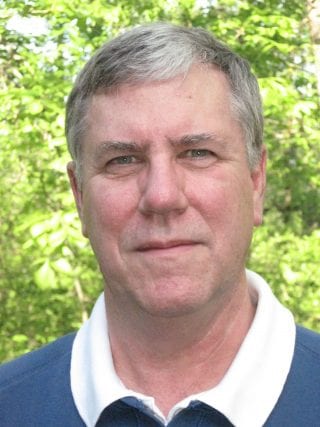 For 41 years, I was a faculty member in the Department of Psychological Science and served as department chair for 17 years. I taught roughly 25,000 general psychology students during my tenure and trained 25 Ph.D. students.
For 41 years, I was a faculty member in the Department of Psychological Science and served as department chair for 17 years. I taught roughly 25,000 general psychology students during my tenure and trained 25 Ph.D. students.
I had a full and rewarding career, and then, at the end of May 2017, I retired.
Now what? I no longer hear people calling “Dr. Schroeder” or “Professor Schroeder”; they just call me “Dave.” Significant parts of my identity for so many years were gone. The prestige, status and perks were gone – no more parking in the Reserved lot!
For better or worse, I got to (or had to) reinvent myself. For me, the transition was easy, although Dean Shields did give me a nice book about how to retire happily to help me out.
I had been preparing for retirement for several years, I left on my own terms, I was not running from anything bad about my job, and I was ready to move on. I have not missed any of the things that I did in academia; I left at the right time.
I no longer have the old things to do every day – no classes, no committee meetings, no books or articles to write. How can the hours of the day be filled?
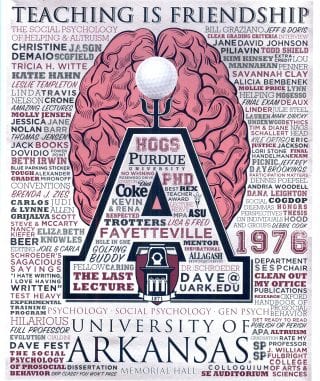 Actually, it has been rather easy. Instead of getting up at 6:30 a.m. every day, I can sleep until 8 a.m. – that fills one and a half hours of the day right there!! It is surprising how much time reading the newspaper and watching the morning news can take if you don’t have to get to school.
Actually, it has been rather easy. Instead of getting up at 6:30 a.m. every day, I can sleep until 8 a.m. – that fills one and a half hours of the day right there!! It is surprising how much time reading the newspaper and watching the morning news can take if you don’t have to get to school.
My wife and I also go to the athletic center three mornings a week. It is good to try to get in shape, but it is also a place where I meet some new “old guy” friends who never knew me as a professor.
We talk about sports, vacations and muscle aches; politics, religion and psychology are not discussed.
After exercise, I have lunch with my wife. I play golf in the afternoon when the weather cooperates. I get to see people I used to work with every day when we go out for dinners and take in plays or concerts.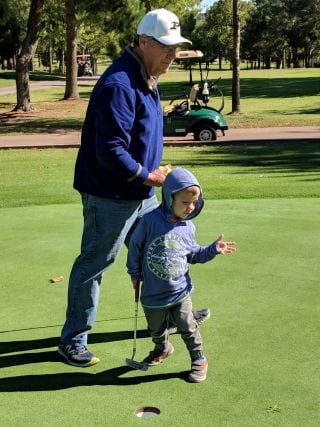
Retirement affords opportunities to travel whenever you want. Visits with my kids who live away from Fayetteville are a big draw, especially when there is a grandson involved.
Get-togethers with long-time friends who live around the country (grad school buddies; research collaborators) can be scheduled wherever we want to enjoy good food, good wine and good conversation.
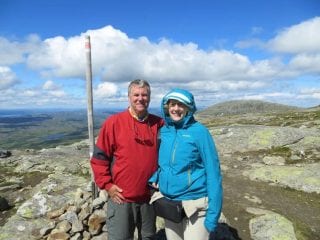 If my wife and I just want to take a holiday, we can. We recently returned from a two-and-a-half week trip visiting the national parks of Utah and the Grand Canyon – in September, in the middle of the semester!!
If my wife and I just want to take a holiday, we can. We recently returned from a two-and-a-half week trip visiting the national parks of Utah and the Grand Canyon – in September, in the middle of the semester!!
Lessons learned so far? There is a lack of urgency in retirement – few deadlines, things can wait. I don’t even wear a watch.
This is the first time in 45 years that I have not had some article, chapter, or book that needed to be complete; it has been liberating.
Social connections are invaluable, whether it is working out with my gym buddies or dinners with former colleagues. I do want some solitary “me time,” so finding the right balance is critical.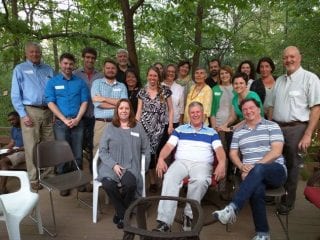
Finally, staying cognitively active is also important; planning the itinerary for the national park trip was a good problem-solving task. These lessons may not be anything surprising, but these things keep me happy and help me find my bliss.
My son also advised, “You only retire once, so don’t screw it up.” I am trying to do it right.
By David A. Schroeder, Professor Emeritus in the Department of Psychological Studies
If you would like to be considered for a First-Person Experiences story, please send your idea to fulbcomm@uark.edu

